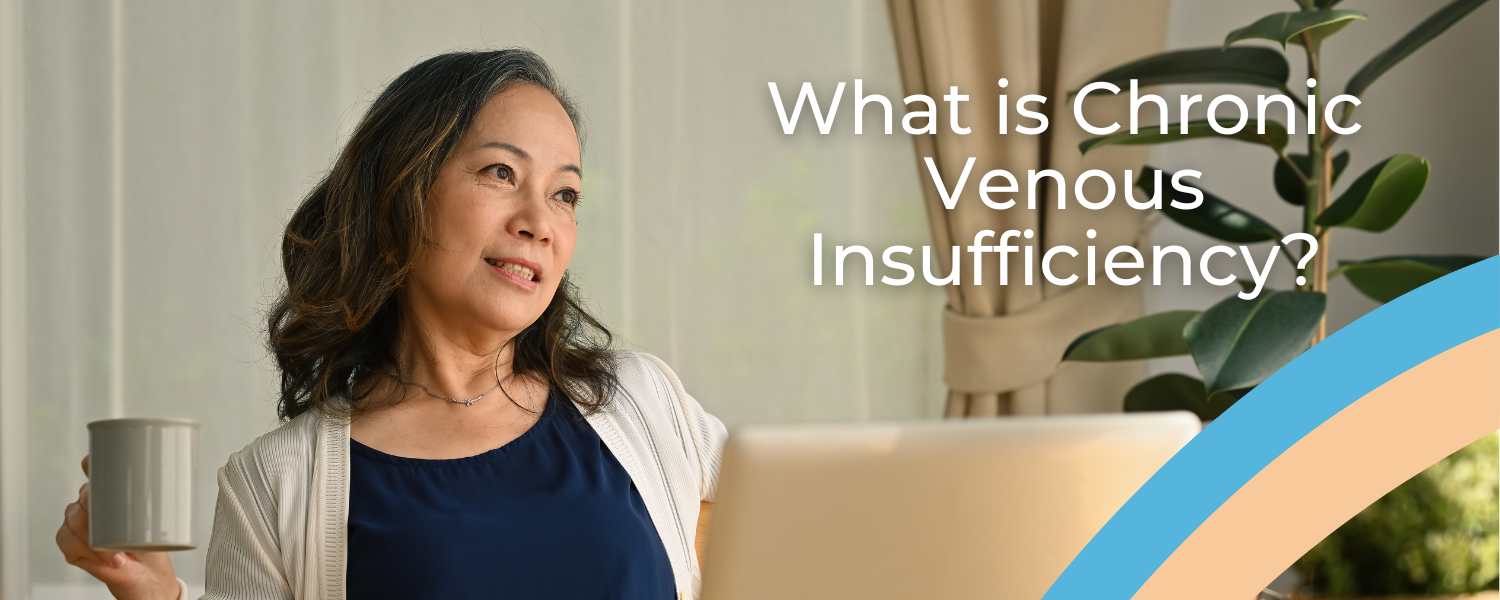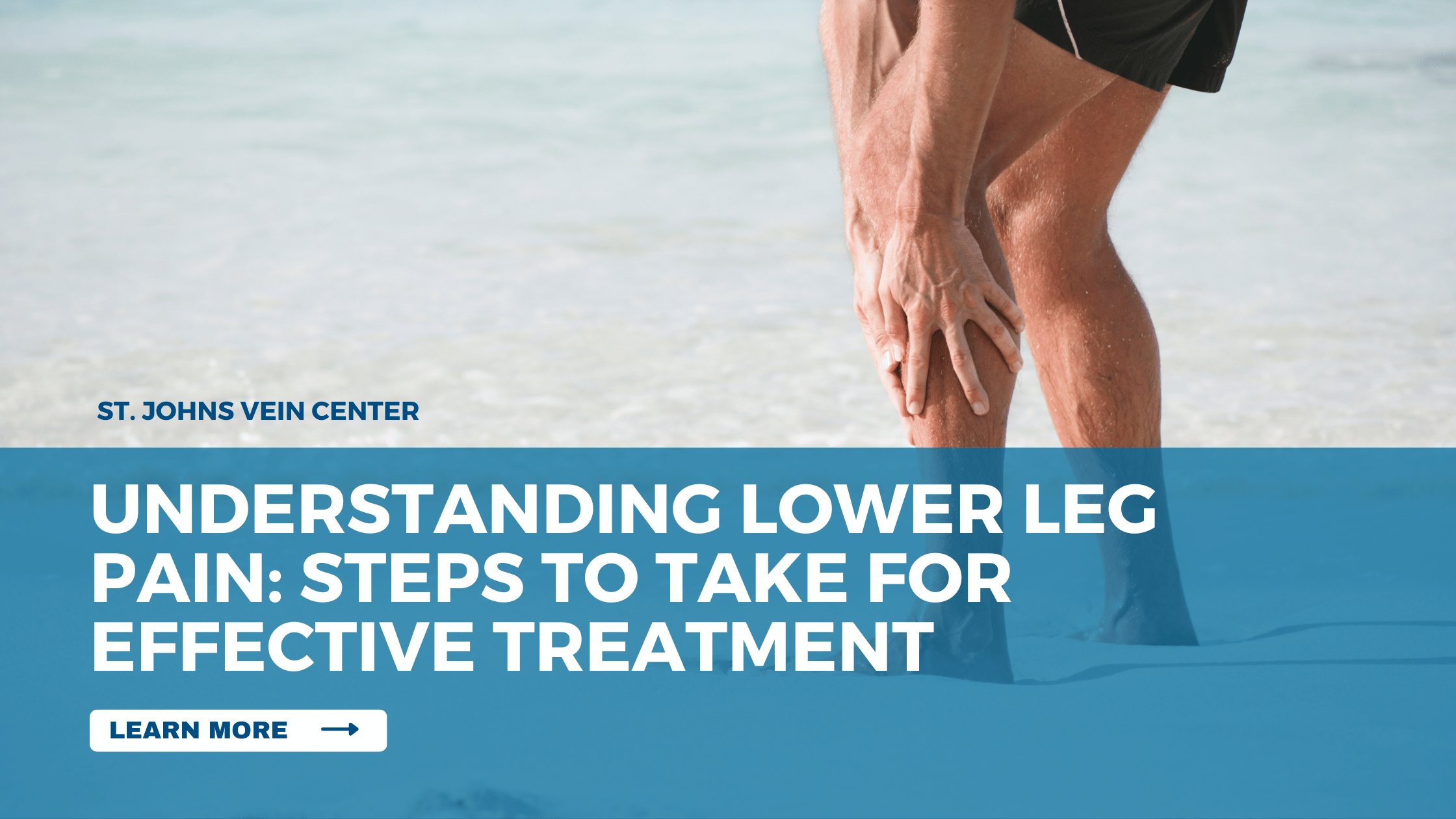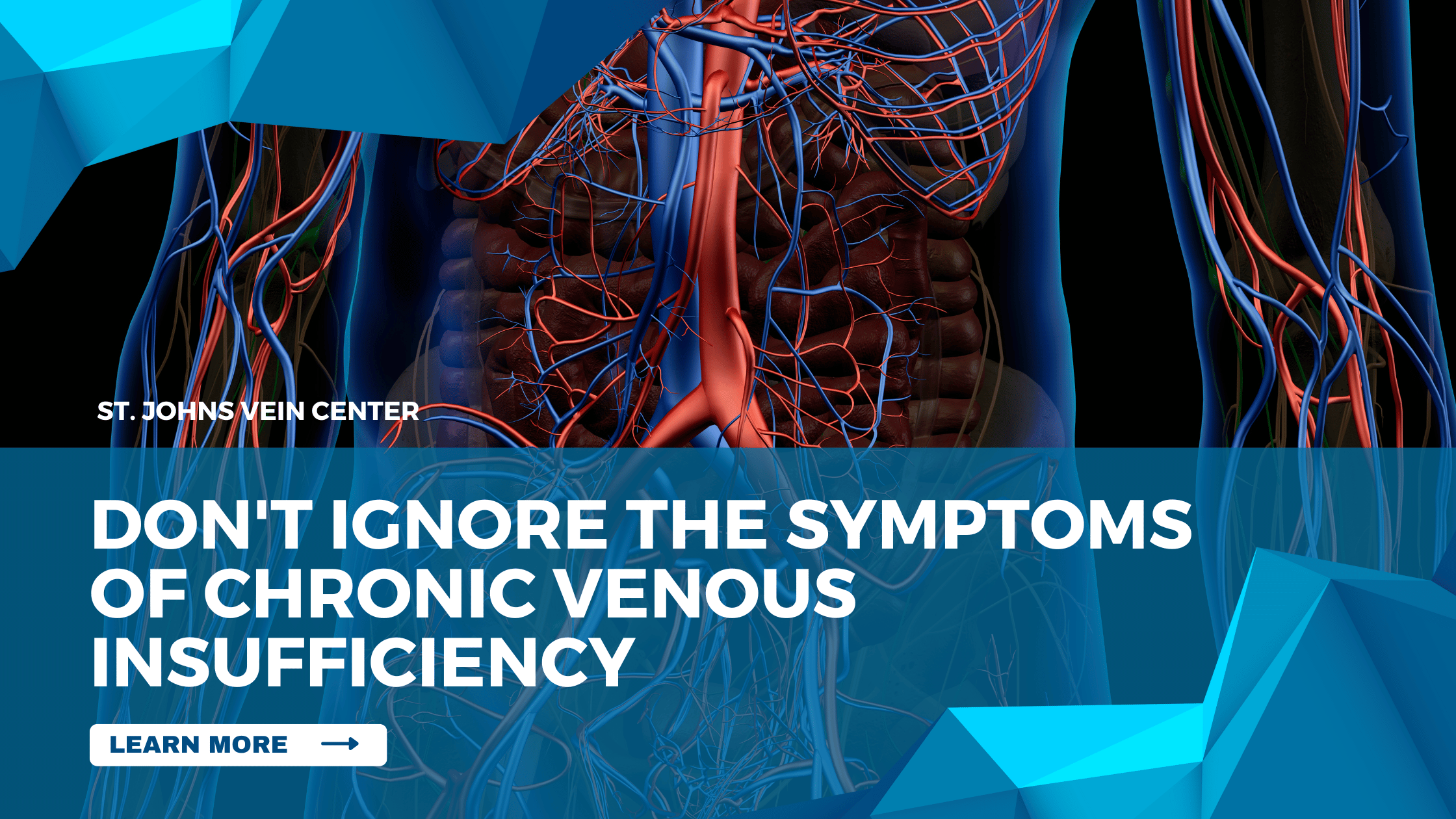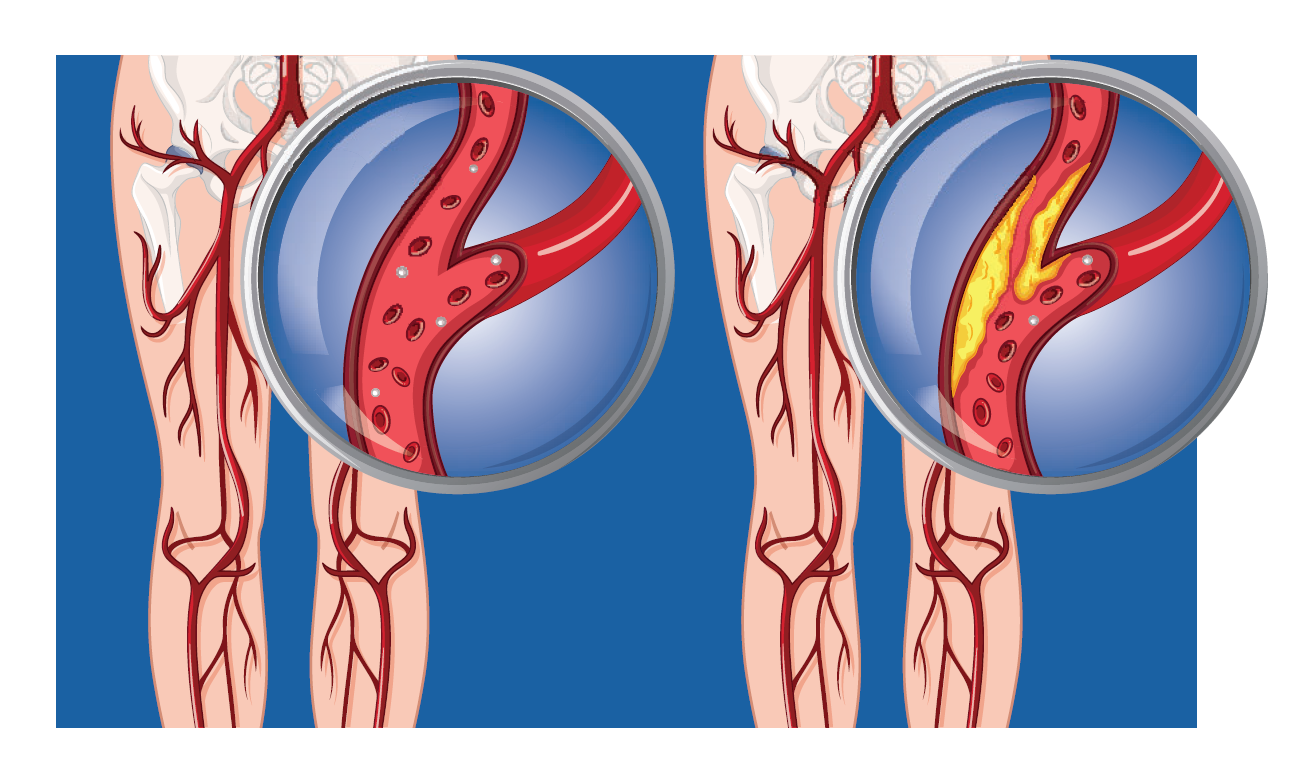Known as CVI, chronic venous insufficiency, Jacksonville’s Dr. James St. George explains, is a medical condition in which the veins are unable to pump enough oxygen-poor blood back to the heart. It’s caused by damaged blood valves and often occurs after deep vein thrombosis or phlebitis. While women make up the majority of CVI sufferers, it’s also common among men who work jobs that are hard on the legs. Utility pole linemen and paratroopers are examples.
Among those most at risk for Chronic Venous Insufficiency are:
- Elderly
- Female Adults
- Taller People
- Those with a Family History of Vein Issues
- People who are Overweight
- Pregnant Women
- Those Who Sit or Stand for Extended Periods
Symptoms of CVI:
Symptoms can include itching, hyperpigmentation of the skin, plebetic lymphedema and chronic swelling of the legs and ankles. For patients with chronic venous insufficiency, Jacksonville’s St. Johns Vein Clinic offers several treatment options including compression hose and sclerotherapy. The use of compression hose to treat CVI goes all the way back to Hippocrates, who treated the condition with bandaging. Other treatment forms include manual compression lymphatic massage therapy, ankle or sequential compression pumps and blood pressure medications. For more severe cases, surgical treatment may be necessary.
CVI patients are encouraged to exercise and to elevate the legs above the heart while sleeping by placing firm pillows beneath their legs or using a bed wedge.




